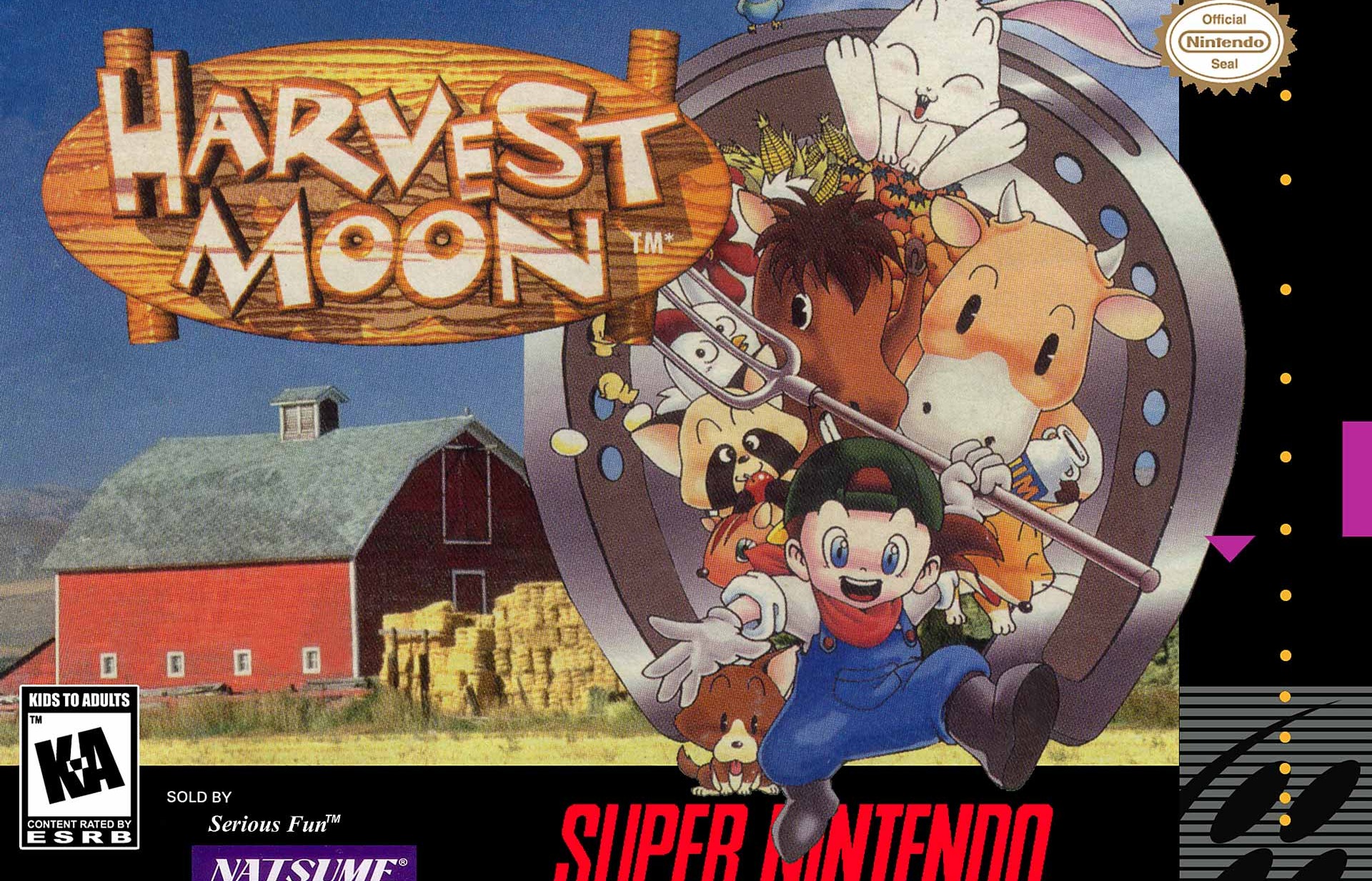Written for XPGain, recreated with permission.
Played on Nintendo Wii. (Also available on the Nintendo WiiU.)
To some degree, games cannot be divorced from their environments.
While most games are in general, pre-scripted and empirical in their events, the perspectives and interpretations players bring will always be unique to that individual play experience. In particular, player moods have a lot to do with how a player experiences a game. Some games willfully manipulate the emotions and moods in order to put the player in a certain frame of mind, while others are more organically evocative, leaving the player to build their impressions as they may.
It is there that Harvest Moon, originally for the Super Nintendo, draws its strengths. Harvest Moon finds its best aspects by simply leaving the player to their own devices and letting what they create make up how they play and enjoy the game. It’s a very indulgent system, one that gives the player a system to work in, and then a long leash to find what helps them enjoy the game.
Harvest Moon is a farm-based sim originally released for the Super Nintendo, later re-released for the Nintendo Wii and WiiU systems through Nintendo’s Virtual Console platform. Although there is a narrative, there isn’t much to it. The protagonist is a young man leaving home to take care of a farm for a few years until his family returns to judge his progress. Beyond that, very little of narrative consequence happens throughout the game.
To that end, the player has two zones they can access, a nearby village with several women the player can marry, and multiple shops that sell farming supplies, food, livestock, seeds, and occasionally special items. In the mountains, there are tradesmen who offer the player options such as fishing or the ability to upgrade their house and farm.
Mechanically, the game is about maintaining the farm itself, farming, keeping livestock, and earning money to improve the farm to a more optimal state. Much of this is accomplished by buying seeds, digging a plantable area, and shipping crops once they’ve grown. Although it is the theoretical purpose of the game, farming is actually one of the slower and least interesting parts of the game.
This is, in part, due to the game’s limited daytime, where too many crops or being too far away from the shipping box waste too much time transporting the crops one-by-one by hand. The limited systems don’t really address this, either, making the game’s strongest aspects those where the player can do them briefly, or spend the most time indoors or at night, where the passage of time is frozen.
Instead, the game’s better parts come from interacting with the townspeople, the livestock, and scavenging in the mountains for seasonal fruits. The decent range of dialog that changes with the seasons and goings on, the seasonal events that take place in the town, and the visuals and music that changes also. Although the visual changes are minimal, this works to the game’s better aspect, maintaining a strong visual theme. The spritework and aesthetic is all very crisp, clear, and at times gorgeous, giving the player plenty of scenery changes and weather effects to enjoy.
Even in the more static aspects like character, animal, and tool sprites, the game is lovely. The sprites are all relatively low resolution, but clear, defined, and crisp despite that. The animations, both idle and active, are simple but evocative. In short, the visuals of the game are quite well-rendered, and manage both a surprising variety and visual consistency that is enduring and pleasant. Music follows along the same pattern, shifting with the seasons and times of day, carrying with it just enough of a change to highlight the turning of the season or the changing of the year.
However, the best aspect of Harvest Moon really does rest in the player’s mood. It isn’t a game about actively playing, not in the same sense that most games have, but rather about the experience. The music, the visuals, the mechanics all coalesce to produce a game that is very much about the experience. It is no more right to exclusively farm than it is to exclusively forage, to marry one girl over another, or to delve deep to find all of the secrets, or a mixture of all of the above, or to perfect the system and do them all simultaneously. The only way to play it wrong is to do it in a way that is unenjoyable. It’s a system that enables a player’s play, in the most joyful and simplest of ways.
As such, a game like Harvest Moon can’t simply be taken strictly at its objective values. It’s a game that is as much a tool for a player’s mood as it is a play experience, and it’s a game that always seems to leave the player better than it found it. It’s a game well worth playing.

Thoughts?